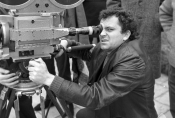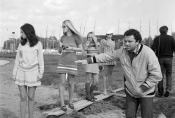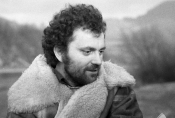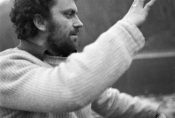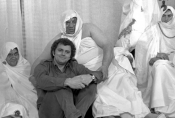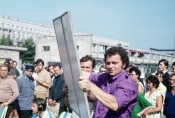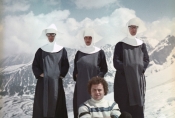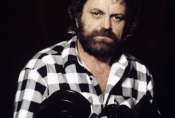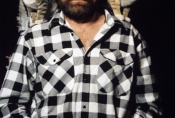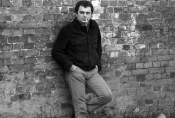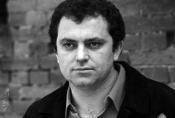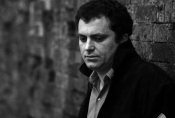Andrzej Kondratiuk

Film director, screenwriter, cinematographer, production designer, editor, composer, actor and producer. He was born on July 20, 1936, in Pinsk (now Belarus). A graduate of the Cinematography Department of the State School of Theatre and Film in Łódź (1963). In the years 1962-1963, he also studied at the Directing Department there. The older brother of director Janusz Kondratiuk, and husband of Iga Cembrzyńska – the well-known actress, singer, screenwriter, director and producer.
He debuted with short feature grotesques shot in the Łódź Studio of Small Film Forms “Se-Ma-For”: Nad wielką wodą/By the Big Water (1962) starring Bogumil Kobiela, Niezawodny sposób/Reliable Method (1963), Balon/Balloon (1967), and the short animations: Kolorowe kłamstwa/Coloured Lies (1966) and Fluidy/Fluids (1967). His first television projects include: Kobiela na plaży/Kobiela on the Beach (1963), Monolog trębacza/Trumpeter’s Monologue (1965), Chciałbym się ogolić/I Would Like To Shave (1966) and Klub profesora Tutki/The Club of Professor Tutka (1966) – an adaptation of well-known stories by Jerzy Szaniawski, or even the cult classic Hydrozagadka/Hudro-Riddle (1970) – a surreal and humorous story starring Józef Nowak as the Polish Superman. In 1970, his completed his debut cinema feature, Dziura w ziemi/Hole in the Ground (Special Award in Karlovy Vary), the contemporary story of a group of geologists looking for oil in southern Poland. His next film was a parable about friendship, love and betrayal, Skorpion, panna i łucznik/Scorpio, Virgo and Archer (1972). His unconventional sense of humour earned him immense popularity after the release of his two comedies – Wniebowzięci/The Ascended (1973) and Jak to się robi/How It's Done (1973), starring Jan Himilsbach and Zdzisław Maklakiewicz. He proved his filmmaking skills with his subsequent television films – witty, yet filled with poetry and serious reflections on life: Gwiezdny pył/Stardust (1982, prize in Gdańsk), Big Bang/The Big Bang (1986, Golden Screen, Warsaw Mermaid), Mleczna Droga/Milky Way (1990).
Cztery pory roku/The Four Seasons (1994, awards in Locarno and Gdynia), a philosophical impression on the passage of time and the meaning of life, marks the beginning of a new style – it is a very personal film made together with his wife Iga Cembrzyńska in Gzów – their country estate. He continued this new formula in his subsequent films: Wrzeciono czasu/Time Spindle (1995, awards in Gdynia and Moscow, Golden Reel) and Słoneczny zegar/The Sundial (1997), beautiful stories of love and transience, full of poetry and humour tinged with sarcasm. In these films, autobiographical elements are interspersed with fictional themes. "Everything that is human is alien to me more and more,” their hero confesses. What remains is cinema, the only true love, which, unlike real life, loves a happy ending. He continued existential reflection in the documentary Pamiętnik Andrzeja Kondratiuka/Diary of Andrzej Kondratiuk (2006).
Jerzy Armata
Selected filmography
-
1970
HYDRO PUZZLE
-
1982
STARDUST
